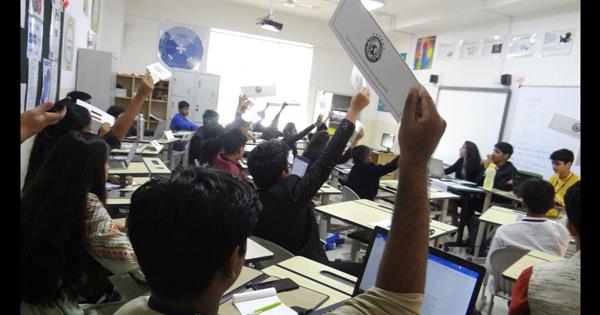
Role of Instructor in Model United Nations Orientation
As a classroom instructor in Model United Nations orientation programmes, one of the most difficult tasks you may face is getting your students' Model United Nations (MUN) delegation ready for their very first conference.
The significant gap in degrees of expertise creates this obstacle, and it doesn't matter if we are talking about leadership, giving presentations in public, or taking part in conferences.
Challenges to Teachers
There is a possibility that some delegates are making the move to MUN from leadership roles in the school's Student Council or debate club, while others may be participating in MUN for the very first time and are quite nervous about it.
In addition, the organisational structure of Model United Nations clubs can vary greatly. Some of these clubs have only recently been founded, and its members have only participated in practise simulations.
Other clubs are made up of students who have recently demonstrated an interest in the subject, possibly as a result of attending a history lecture. In light of these differences, what instructional methods are available to teachers for appropriately preparing students for their first Model United Nations conference?
Fostering Unity Within the Team
Teachers have the ability to establish the groundwork for the success of a conference by designating senior members of the delegation to take on leadership positions and guide the team.
The appointment of a head delegate, who will operate as the principal point of contact with the conference organisers, is one possible way to get started with this.
In addition, teachers have the option of designating certain delegates as "country heads" and giving them the responsibility of leading smaller groups of students in joint research on a particular member state.
Educators should further engage students by assigning projects that are not related to their committee or country assignments when students are participating in conferences held elsewhere. For instance, a senior may head up these teams and give them the mission of finding things for the members to do during their spare time, exploring local night markets and the various food options they offer, or researching reasonably priced meal options close to the location of the conference.
This not only helps to generate enthusiasm among the group in the lead-up to the conference, but it also helps to enhance the cohesiveness of the delegation as they get ready for international travel.
Reviewing Position Papers of Students
In many different Model United Nations conferences, participants are expected to hand in position papers in advance. During the first committee session of conferences that follow the structure of the Model United Nations (MUN), participants engage in lobbying with their draught resolutions in hand.
In this regard, instructors have a significant part to play. They can play a crucial role by delegating senior team members to the task of reviewing and providing comments on documents written by other delegates representing the same country in separate committees.
In order to better assist delegates, especially those who are going to their very first conference, teachers themselves can provide their knowledge and experience as a second pair of eyes.
It can be quite beneficial for delegates to have a teacher examine their resolutions in order to better understand the complexities of writing position papers.
The Importance of Diplomacy in Model United Nations Simulations
It is crucial for instructors to emphasise that Model United Nations (MUN) conferences are, at their core, simulations of the diplomatic process.
While the environment at a conference can become intense and competitive, teachers should urge students to keep a broader perspective beyond the chase of awards in order to avoid becoming consumed by the atmosphere.
Aside from the competitive aspect, Model United Nations (MUNs) present students with a one-of-a-kind opportunity to form lifelong friendships with peers from a variety of educational backgrounds and nations.
Students have a lot to lose if, as a result of their actions during the conference in regard to other delegates, they earn a reputation that is unfavourable either for themselves or for their school.
In order for students to get the most out of this priceless learning opportunity, it is imperative that teachers stress in their students the significance of maintaining civility and participating constructively throughout the duration of the conference.
Related Blogs
-
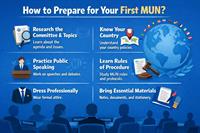
19-Jan-2026 How to Prepare for Your First MUN?
-
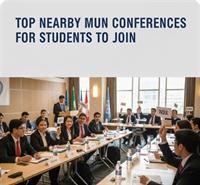
24-Dec-2025 Top Nearby MUN Conferences for Students to Join
-
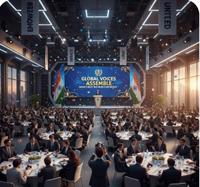
27-Nov-2025 Global Voices Assemble India Next Big MUN Conference
-
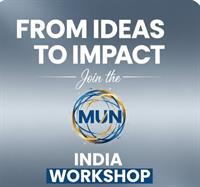
13-Nov-2025 From Ideas to Impact Join the MUN India Workshop
-
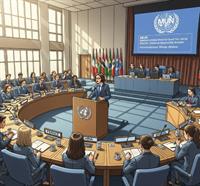
14-Aug-2025 What Is A Conference In MUN?
-
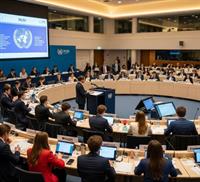
07-Aug-2025 What Does the MUN Do?
-
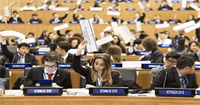
03-Jul-2025 Ways to Research for a Model UN Position Paper
-

28-Mar-2025 What skills do you gain from Model United Nations?
